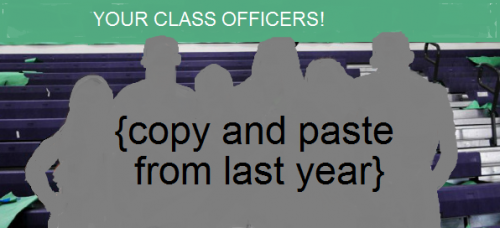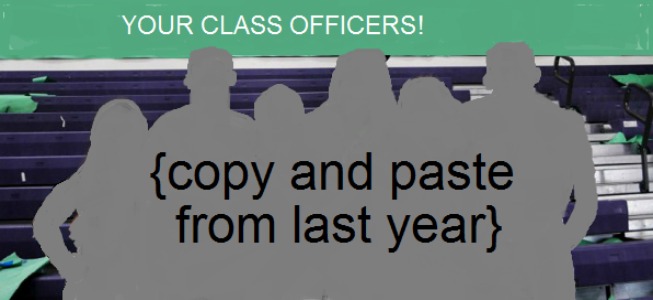The crazy costumes, the endless Facebook spam, the witty (and not so witty) puns — for sophomores, juniors and seniors, it’s all a familiar part of class officer elections. For freshmen, it’s an exciting new experience and an enlightening exercise in democracy — one that unfortunately doesn’t return for the remainder of high school.

The fact is, once class officers are elected in that one fateful window in the very beginning of high school, it’s very unlikely that they will leave class office up through ASB elections in senior year. With a few minor exceptions, like the addition of an IDC representative in junior year and the occasional class officer leaving the school, there really aren’t very many opportunities for new class officers to arise, due simply to the fact that the student body refuses to vote for new people running for class office. For example, throughout the freshman, sophomore, junior and ASB elections for the class of 2013, President and Treasurer remained the same all four years, and the other positions were swapped back and forth between a combination of roughly the same people that were elected in their freshman year. Between 21 positions available throughout four years, the same eight people held class office. The trend can also be seen in the class of 2014, in which the only changes in class officer positions occurred after the positions of Social Manager and Secretary were vacated when those officers left MVHS.
It’s no reflection of anything other than the student body’s views in general. It’s not the fault of the returning class officers, nor are the new campaigners to blame. The simple truth is that once a class office position has been secured in freshman year, one can assume that more likely than not, that position has been secured for the remainder of the class officer’s high school career. In fact, as the years go on, there is a noticeable decrease in the amount of the people that even try to run for class office, presumably because the majority of the student body already assumes that the people that have been winning for the past years will continue to do so.
Perhaps it’s because of laziness in deciding who would really make the best class officers, perhaps it’s attachment to familiarity or perhaps it’s just proof that class officer elections really are simply one big popularity contest. There’s no denying the possibility that the people that are continually elected are indeed the best to do the job, but it stands true that despite the rapid and endless changes occurring in high school, decisions by the student body cause leadership to remain in the hands of the same people — decisions that, once senior year is reached, were made four years in the past. These rapid and constant changes that occur warrant a change in class office. It is simply illogical for a group of ever-changing people to be represented by the same class officers year after year.
Just as the United States re-elected Franklin Delano Roosevelt four times from 1933 to 1945 in the midst of the Great Depression and into the beginning of the Cold War, the students of MVHS are either too busy fighting the only slightly less intense battle of academia to care to make changes in leadership positions, or take comfort in seeing familiar faces in charge in such trying times. For this reason, 2016 and all other freshman classes end up making monumental decisions about class officers before their high school experience has truly begun.
Of course, instituting a rule comparable to the U.S. law mandating serving only two terms in office most likely would not be well-received by a student body that already often complains of administration’s vice-like grip on their freedoms. However, until there’s a change in either class office policies or in the attitudes of the general student body, it’s very unlikely that we’ll see a real competition for class officer positions.








